Notes from our Making Connections Conference 2017
Keynote Address by Dr. Jean Clinton:
Walking through what a school could be like!
| Challenges: Competing interests and tensions between allowing kids to thrive and flourish and also trying to keep the math scores up! Strategies: Building the collaborative professionalism within schools, shared guiding principles on what education looks like, whole-child approach Successes and what helped them be successful: Thinking and acting with a growth mindset; reminder that our genes are not our destiny Summation Points: Relationships matter |
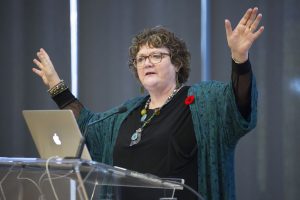 |
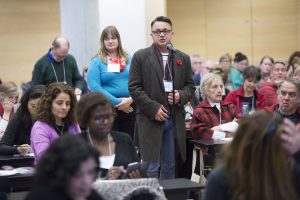 |
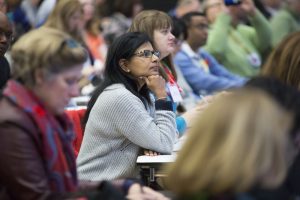 |
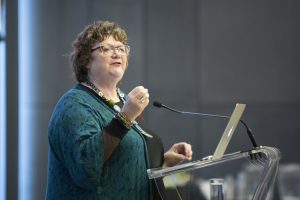 |
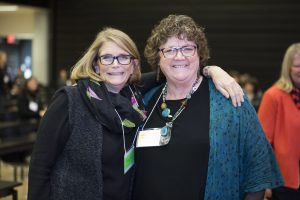 |
The First R – Relationships: Achievement, Equity and Well-Being in Ontario Education
- Are we thinking about building the relationship skills that educators need?
- Collaborative Professionalism: Researcher Andy Hargreaves suggests asking not just about what to think, but how to think. What are we thinking in regards to the teacher-student relationship?
- Do we have guiding principles about what education looks like?
- If we’re so busy “stuffing the duck” via our curriculum, then we are moving away from the sacred mission of educating children.
CHALLENGE: There are competing interests and tensions between allowing kids to thrive and flourish and also trying to keep the math scores up!
STRATEGIES: Focus on developing the pillars and principles embedded within a whole-child approach (connected to the self/spirit: physical, cognitive, emotional, social)
A question for our educators: Do you see yourself as a human developer or someone who is preparing the child for the next grade or the next step? In our classrooms, are we interfering with that social drive to connect and have empathy for each other?
“The tyranny of cognitive seduction: We think the academic skills or science, math, literacy helps them flourish. But really, their love for learning and the soft-skills help kids soar!” – Dr. Jean Clinton
Dr. Stuart Shanker says it is really ‘stress behavior not misbehavior’.
“Kids will do well if they can, not if they want to!” – Dr. Jean Clinton on the importance of adopting practices that develop a child’s ability to self-regulate.
Part 1 |
Part 2 |
Part 3 |
All young people need (from People for Education):
- Strong foundational skills that support perseverance, adaptability and self-awareness
- The capacity to communicate, collaborate and imagine solutions to complex problems
- Knowledge and habits that will allow them to take care of their physical and mental health
- A deep understanding of the roles and responsibilities of citizenship, and the capacity to engage as citizens
- Curriculum and school-based programs that will prepare them for a range of possible futures
WHAT’S NEXT: Imagine a school where the focus is on the conditions for learning! This is what we are working with in coordination with the Ministry of Education and what People for Education has done so much work on.
- Here is the CHALLENGE: How can we balance the development of these competencies and bring it in and through the curriculum!
- ‘Education is more about lighting the fire than filling the pail!’
- Remembering: What we think… Affects how we feel… Affects how we act…
We need to have a growth mindset and remember that ‘people are made not born’. Ask: How do we spend our time with children? Are you connecting- or redirecting and correcting?
SO WHAT? When you have high quality in school relationships, the emotional difficulties go down! School relationships are important for well-being! Relationships matter.
